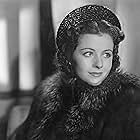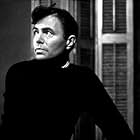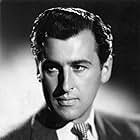After a brutish, hedonistic Marquis marries a pretty young Clarissa to act as a 'brood sow,' he begins an affair with her friend who plots to take her place.After a brutish, hedonistic Marquis marries a pretty young Clarissa to act as a 'brood sow,' he begins an affair with her friend who plots to take her place.After a brutish, hedonistic Marquis marries a pretty young Clarissa to act as a 'brood sow,' he begins an affair with her friend who plots to take her place.
- Awards
- 1 win total
- Toby
- (as Harry Scott)
- Mrs. Fitzherbert
- (as Norah Swinburne)
- Amelia
- (uncredited)
- Gervaise
- (uncredited)
- Doctor
- (uncredited)
- Gamekeeper
- (uncredited)
- Lady Marr - Clarissa's Godmother
- (uncredited)
- Jane Seymour
- (uncredited)
- Old Porter
- (uncredited)
Storyline
Did you know
- TriviaJames Mason was originally cast as Rokeby, but he took over the villain's part of the Marquis of Rohan, replacing Eric Portman. Stewart Granger inherited the role of Rokeby.
- GoofsToby does not age. He remains a young boy throughout the film.
- Quotes
Hesther Shaw: You say you love her; well, so do I him; and if anyone comes between, so much the worse. I've no quarrel with those that don't interfere; but if you love her, keep her from getting in my way.
Peter Rokeby: Pretty speech but dead in character. For once you've spoken the truth, my dear, I do believe you'd stop at nothing.
Hesther Shaw: Then remember it!
Peter Rokeby: There's one factor you've overlooked... me! You see, I'm not a gentleman. I swear but that if she comes to harm through you, I'd break that lovely little neck of yours with less regret than I'd stamp on a snake.
[He slaps her and departs]
- ConnectionsFeatured in James Mason: The Star They Loved to Hate (1984)
Two people Phyllis Calvert and Stewart Granger meet during an auction sale during wartime Great Britain. An estate is being sold off as the last of the male heirs has died. Calvert is the last surviving woman who can't inherit and Granger is the descendant of a man who was involved with one of the ancestors and has an heirloom or two of his own. The camera focuses on a series of mundane antiques and then it dissolves to the Regency period where the story is told and we see the connection of all these objects to the lives of the four stars.
James Mason is in the title role and he's a titled Earl who is haughty and arrogant and revels in being an aristocrat. He has to take a wife to begat an heir, but he wants one who won't get too much in the way of the rakish lifestyle he has no intention of changing. Among Regency aristocrats even he's giving them a bad name, a fact that Raymond Lovell and Nora Swinburne as the Prince Regent and Mrs. Fitzherbert are quick to notice.
Who Mason has chosen for a bride is Phyllis Calvert, a pretty and somewhat naive young thing. Naive so much that she takes as a friend a young woman not of her class when they were both in Martita Hunt's finishing school.
Calvert's ill chosen friend is Margaret Lockwood who gets thrown out of the school for some indiscreet behavior. Years later when Calvert is married to Mason she finds Lockwood now with an acting troupe. Back then being an actor if you weren't William MacCready or Edwin Forrest you were not considered respectable. And note those two examples were men.
Calvert's like Melanie Hamilton who sees only the good in people. But Lockwood is one exponential Scarlett O'Hara. Imagine Scarlett on steroids and you have Lockwood's character. She wants Mason with all that the title and privileges will bring. And his mojo really gets going with her.
And Calvert's mojo gets going for the first time in years with likable gypsy Stewart Granger. This was Granger's first real big part in film and it brought him great critical notices and fulfilled promises of future stardom.
Good as Granger and Calvert are, they pale beside the evil characters that Mason and Lockwood essay. I would have to say Lockwood is the more evil mainly because she hides it so well until the end. Mason's a lot, but he isn't a hypocrite.
One curious piece of casting is young Harry Scott as the young black slave Toby is interesting. It could be the only case of blackface in the British cinema. Since this was the only credit young Mr. Scott had we don't know for sure, but I think this was a white kid in makeup.
The Man In Grey is one of the best films the British cinema turned out during World War II. Like the lead characters who wonder about the connection between them, the British movie-going public went to see this film and put themselves in the places of the leads and wondered about their ancestors and their doings during a postwar period of peace. It's got some of the best acting going by four very skilled players and a good cast in support. And it holds up very well today.
- bkoganbing
- Oct 19, 2009
- Permalink
- How long is The Man in Grey?Powered by Alexa
Details
Box office
- Budget
- £90,000 (estimated)
- Runtime1 hour 30 minutes
- Color
- Aspect ratio
- 1.37 : 1
Contribute to this page


















